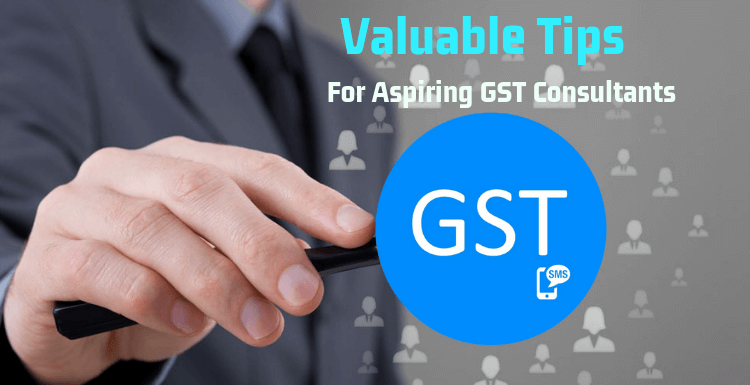
Last Updated on January 10, 2019 by admin
The implementation of the Goods and Services Tax in 2017 saw a large number of businesses approaching GST consulting services to get advice on GST registration for new business as well as appropriate tax planning measures. Most reputed GST consultants in India had used the period before the enactment of the law to study its features and assess its impact on the different business domains of the country. This helped them in providing valuable guidance to their clients in not only understanding the liabilities but also ensuring compliance with the new regulation. In this article, we are presenting a few valuable suggestions for tax advisors who want to assist businesses on GST.
Know more: Top 3 Reasons to Prefer an Online Task Management Software
Table of Contents
Best 5 Tips For Aspiring GST Consultants:
1. Be Aware Of The Latest Information
The new law is probably the biggest indirect tax reforms that the country has witnessed in the post-independence era. It has replaced many old taxes like service tax, VAT, octroi etc. The new regime has a four-tier tax structure with rates of 5%, 12%, 18%, and 28%. Moreover, all registered entities have to file monthly, quarterly and/or annual GST Returns based on the type of their business. The government keeps making changes to the goods included in the tax slabs as well as modifying the rules. A professional must keep track of all these changes as well as the important dates for return filing to provide help to the clients.
Read more: How Company Culture Impacts Customer Experience
2. Invest In Appropriate Infrastructure
The introduction of the new law eliminated levies likes service tax making the earlier software solutions for accounting and tax calculation redundant. Moreover, the GST registration, as well as the returns filing procedure, are completely online. Professionals looking to become GST service providers must invest in appropriate infrastructure. Business owners will need guidance at every step, be it registration, assessment, or returns preparation and filing. Technological tools hold the key to making error-free calculations and maintaining important documents. Advisors must also become familiar with the online processes of the government portal in order to provide efficient services.

3. Research Relevant Tax-planning Measures
Entrepreneurs approach GST consultants in India not only for understanding their tax liabilities but also for reducing their tax burden. Professionals must be well-prepared to spot any problems in a specific industry and be ready with appropriate remedies. Large corporations, as well as small firms, will welcome suggestions which help them reduce their taxation costs. GST has caused a diametric shift in the indirect taxation landscape of the country. It is a destination-based tax as compared to the origin-based service tax of the past. Companies need assistance for minimizing their liabilities and advisors must research the subject to provide them with effective solutions.
Read more: How to Use Automation to Keep a Tight Sales Pipeline
4. Learn About Regulatory And Procedural Compliance
As mentioned earlier, the new law requires companies to file multiple returns during a financial year based on the nature of their business. Moreover, because of the destination-based character of the tax, companies operating in more than one state have to get GST registration separately in all locations. This has resulted in an increased burden of compliance for most businesses. Tax consultants must know about all regulatory and procedural compliance requirements in order to clear doubts of entrepreneurs.
Read more: Social Media To Increase Business Revenue
5. Be Well-equipped To Train Others
The implementation of GST has led to a rise in demands of training across all industries. Not only professionals working in the finance and account departments but top-level executives, as well as, mid-level managers need to learn about the new law. In addition to this, tax professionals are also looking for guidance on the subject. Advisors must read thoroughly on the subject to prepare training modules for all kinds of people.
Conclusion:
Professionals aspiring to become top GST consultants in India must be prepared to provide comprehensive guidance on all aspects of the new tax as well as help clients in resolving GST-related disputes.
Author Bio:
Seema Mehra is a Chartered Accountant at Ashok Maheshwary & Associates, one of the top CA firms in Gurgaon. She is a professional writer and loves to share tax related topics.
Comments
0 comments




